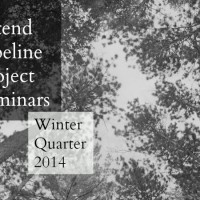
Pipeline Project’s seminars this winter allow students to tutor for credit in conjunction with attending seminars that explore a wide variety of issues and topics in the field of education.
Interested students can contact peichial@uw.edu.
See other Pipeline seminar offerings at http://expd.washington.edu/pipeline/inner/winter-2013/winter-2013-inner-pipeline-seminars.html.
COOL Science Education
Facilitators: Déana Scipio and Tansy Clay Burns
Days/Time: Thursdays, 3:00-4:20 pm
Do you care about learning, youth development, science education, and social justice? Project COOL (Chemical Oceanography Outside of the Lab) is looking for UW students who want to make science accessible and inviting for all learners.The COOL Science Education Seminar is a two-quarter commitment to learn cutting edge approaches to science education and to work directly with diverse middle school youth who themselves will engage in authentic scientific studies. This class is part of a funded National Science Foundation project to engage university faculty, students & youth from underrepresented groups in the practice of contemporary science.
UW students in the COOL Science Education Seminar will learn research-based approaches to support science learning in non-school settings, learn the Project COOL curriculum, and engage in field experiences with youth. Students will develop both knowledge and a community with common interests and skills to support youth science learning. UW students will spend their volunteer hours in two local middle schools. Transportation will be provided to and from the University.
Education for Sustainability
Facilitator: Samantha Dolan
Day/Time: Wednesdays, 12:30-1:50 pm
How can educators develop young people’s knowledge, attitudes and skills needed for our society to meet the needs of today while ensuring a hopeful future? As Washington’s Office of the Superintendent of Public Instruction states, “The quality of life for all people, now and in the future, will ultimately depend upon the individual’s comprehension of the interdependency of environmental, economic and social systems, and of how individuals understand their role in an interdependent world.” This seminar will examine trends in K-12 environmental education in the U.S. and Washington State. Through readings, discussions and guest presenters, w e will explore various philosophies, models and age –appropriate approaches to K-12 environmental education. Students will attend weeklyseminars and volunteer in related school classrooms and community organizations in Seattle for at least 2 ½ (2 credits) hours a wee

